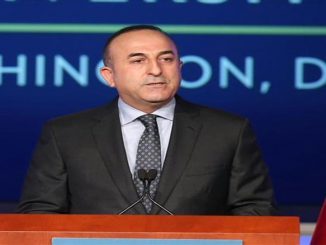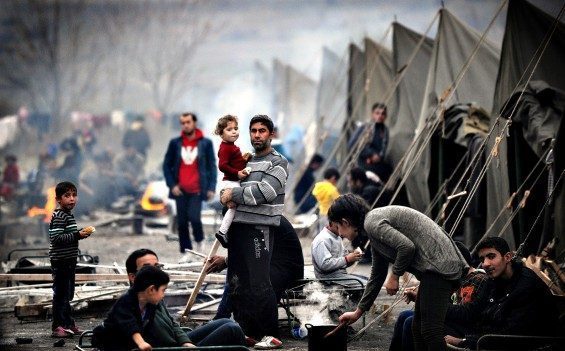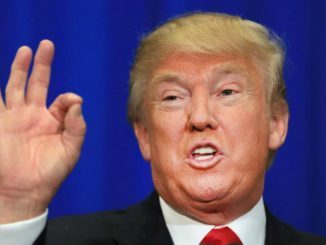
By: Mohammed Al-Minshawi*
No other country is comparable to Turkey in its geo-strategic importance to the United States’ interests around the world. Also, no other country, except for the U.S., can provide for Turkey what it needs of strategic support. Hence, the current confusion in the relations between the two countries raises complicated questions.
***
Upon receiving the news of the military coup attempt against the legitimate and democratically elected government of Turkey, the U.S. Embassy in Ankara issued a formal statement in which it warned its nationals, and asked them to stay in their homes. The statement described what was happening then as an “uprising” led by members of the Turkish army, which was understood as a support and acceptance of the coup. Then, the White House waited for nearly four hours before it issued a statement opposing the coup, and calling for supporting the democratically elected government. At the same time, Washington imposed an embargo (which was lifted three days later) on the flights of the Turkish Airlines to the United States, which had a negative impact and led to a loss of 12.6% in the company shares in a single day. On the other hand, Turkey suspended all the sorties launched from the Incirlik Air Base and cut off power there. (The Incirlik Air Base is located in the south, and it is the U.S. fundamental air base for its attacks against ISIS). It is noteworthy that there are about three thousand U.S. troops in Incirlik Base. Turkey has accused Preacher Fethullah Gulen (residing in the United States) of plotting the coup and demanded his extradition to Turkey. Also, Turkish Labor Minister SLüleyman Soylu accused Washington of being behind the failed coup attempt.
***
The relations between the two countries have been established since Turkey’s accession in 1952 to the NATO, where there have been strong military ties. The Turkish army is considered the second after the US military in terms of number and weaponry. Tens of thousands of Turkish officers were trained in U.S. military institutes. The Federation of American Scientists (FAS) [specialized in nuclear issues] confirms that the NATO has nearly 50 hydrogen bombs in its bases deployed in Turkey. Also, Turkey represents an important NATO strategic dimension close to Russia’s southern border. Last November, Turkey downed a Russian military aircraft, and then Turkey’s need to the United States emerged again as it is a bulwark against the U.S. historic enemy. This incident showed that Turkey’s existing good relations with Washington and NATO’s at the time was far more important for Turkey because of the growing chaos around it (Turkey), and the offensive policies pursued by Moscow in the Middle East.
***
Winning all elections that were held in 2002, 2007 and 2011 and 2015 by President Erdogan’s AKP imposed a new reality on Washington. Erdogan has also succeeded in establishing new different relations between the two countries since 2002. The U.S. military institution cannot forget some steps taken by Turkey that formed a shock for the Pentagon and Washington. In 2003, Erdogan’s party refused to allow the U.S. forces to cross into Iraq through the Turkish territory. In 2010, Ankara voted against the resolution backed by the United States and Europe in the UN Security Council to impose sanctions on Iran over its nuclear issue. And in 2011, Turkey clearly announced standing with the aspirations of the Arab peoples for freedom and democracy. Then, in 2013, the Turkish government decided to buy Chinese air defense systems, away for the first time from the western arms, which was a shock to NATO because of Turkey’s membership in it.
And it appeared to Washington that the Turkish regime (with its Islamic background) believes that Turkey is an independent force in the Middle East that does not cooperate with Washington except when this cooperation serves its (Turkey’s) interests. It also seemed that Turkey does not give a “blank check” to its U.S. ally, contrary to what the situation was before the Islamists came to power.
The Turkish policies toward Iraq, Iran, Lebanon, the Palestinian issue, Egypt, or Libya represent a constant headache for Washington. The economic success of Turkey under the rule of the Islamists added an extra dimension in the equation of relations. Turkey’s GNP has increased during this period by up to 300%, making it among the top twenty economies in the world, and it is slated to be among the top ten economies in the coming years. The trade volume between the two countries reached about $18 billion last year, including exports and imports between the two parties. Washington no longer provides military aid to Turkey, but in fact, they share rival relations regarding their military cooperation.
***
The Turkish government is aware that Washington had accepted numerous military coups that took place in ally-countries within the NATO, as the NATO founding treaty does not deal with what to do about the operations of the military seizure of power. The previous coups in Turkey, Greece and Portugal din not lead to a fundamental change in the substantially of relations within the NATO. Journalist Jeffrey Goldberg narrates in his famous interviews with the U.S. President that Obama is resentful of the Turkish leader. “I think that Erdogan is a model for the political Islam, who can bridge the gap between the East and the West! However, Obama later considered Erdogan as a failed and autocratic leader, as he refused to use his army for playing a big role in the Syrian crisis,” said Goldberg. All of the above raises the U.S. suspicions towards Turkey as a strategic ally on which it can rely on in times of crises. The relations with the Syrian Kurdish groups represent an additional dilemma in the relations between the two countries; as Washington has refused to change its position of not considering Democratic Union Party (PYD) a terrorist organization, which Turkey does not tolerate easily.
***
Any new reality that shows in Turkey after the failed coup will not be considered good news for Washington. Also, Washington cannot do a lot with a state that is considered the front-line and the main base of many of operations of the coalition for countering terrorism in Syria and Iraq. In addition, Turkey is the most important master of the crisis of millions of refugees fleeing Syria and Iraq on their way to the European continent. At the same time, Turkey itself has seen more than 12 terrorist attacks by both the Kurdistan Workers’ Party and ISIS on important Turkish targets in a number of cities, including Istanbul’s Ataturk International Airport.
***
There is no doubt that Washington, as its history (the Turkish case) and its present (the Egyptian case) affirm, prefers dealing with armies and generals to dealing with elected Islamic governments. However, Washington will find itself losing in all cases after the failure of the coup in Turkey. The military coup neither succeeded and won the blessing of Washington, nor did it deter President Erdogan.
President Erdogan has the right to prosecute and bring to court the coup plotters and not to tolerate with them. This is a legitimate step as long as he does not deviate from the practice of law. According to what happened during last week, it seems that Turkey would be less free and less democratic after the failed coup attempt. However, it is necessary to recognize the reality away from romance, that if the coup had succeeded, Turkey would have become a repressive and brutal state par excellence, headed by one of the generals.
*Mohammed Al-Minshawi is a journalist and a writer, who is specialized in the American affairs and writes from Washington.
(Published in Al-Shorouk on Thursday, July 21, 2016, and translated for MEO)



